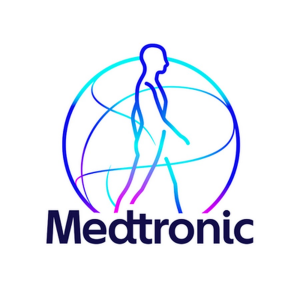 Medtronic is a global medical technology company founded in 1949 that develops and distributes medical devices worldwide. These devices, such as heart regulators and spinal implants, have greatly impacted healthcare by improving patients’ lives. Medtronic is a global medical technology company founded in 1949 that develops and distributes medical devices worldwide. These devices, such as heart regulators and spinal implants, have greatly impacted healthcare by improving patients’ lives. RBI Medical is a medical device company that specializes in bioelectronic medicine and selective neuromodulation treatment. The company develops a Neuromodulation system that delivers personalized stimulation to treat dysfunction and restore normal urinary retention. RBI Medical is a medical device company that specializes in bioelectronic medicine and selective neuromodulation treatment. The company develops a Neuromodulation system that delivers personalized stimulation to treat dysfunction and restore normal urinary retention. Kernel, established in 2016 by Bryan Johnson, strives to boost human cognition and tap into brain potential via technology. They work on non-invasive and invasive brain interfaces for studying and interacting with neural activity. Kernel, established in 2016 by Bryan Johnson, strives to boost human cognition and tap into brain potential via technology. They work on non-invasive and invasive brain interfaces for studying and interacting with neural activity. Neuralink, founded in 2016, envisions a brain-machine interface for two-way communication between the brain and external devices. Their goal is to create impactful technologies that enhance human health and capabilities. Neuralink, founded in 2016, envisions a brain-machine interface for two-way communication between the brain and external devices. Their goal is to create impactful technologies that enhance human health and capabilities.
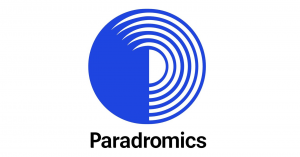 Paradromics is a company dedicated to advancing neurotechnologies for precise neural activity recording and stimulation. Their goal is to create devices connecting the brain to computers, opening innovative possibilities for treating and diagnosing neurological conditions. Paradromics is a company dedicated to advancing neurotechnologies for precise neural activity recording and stimulation. Their goal is to create devices connecting the brain to computers, opening innovative possibilities for treating and diagnosing neurological conditions.
 Galvani Bioelectronics seeks to lead the way in bioelectronic medicine by utilizing electrical signals to create cutting-edge therapies for a wide range of medical conditions, with the ultimate goal of enhancing individuals’ health and well-being. Galvani Bioelectronics seeks to lead the way in bioelectronic medicine by utilizing electrical signals to create cutting-edge therapies for a wide range of medical conditions, with the ultimate goal of enhancing individuals’ health and well-being.
 Draper Labs is a nonprofit R&D organization founded by Charles Stark Draper. It excels in advanced tech solutions for security, space, and healthcare, with a focus on navigation systems. Draper Labs is a nonprofit R&D organization founded by Charles Stark Draper. It excels in advanced tech solutions for security, space, and healthcare, with a focus on navigation systems.
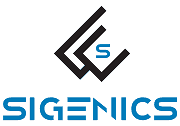 Sigenics is an engineering design services company that focuses on custom IC design and manufacturing. The company works with a diverse range of clients to develop specialized electronic solutions, often involving integrated circuits and microelectronic devices. Sigenics is an engineering design services company that focuses on custom IC design and manufacturing. The company works with a diverse range of clients to develop specialized electronic solutions, often involving integrated circuits and microelectronic devices.
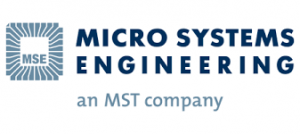 Micro Systems Engineering, Inc. Micro Systems Engineering, Inc. (MSEI) is a company that focuses on creating miniaturized and highly integrated microelectronics for a wide range of applications. The company specializes in providing electronic solutions that require a compact form factor and advanced technical capabilities. Micro Systems Engineering, Inc. Micro Systems Engineering, Inc. (MSEI) is a company that focuses on creating miniaturized and highly integrated microelectronics for a wide range of applications. The company specializes in providing electronic solutions that require a compact form factor and advanced technical capabilities. Braingate focuses on the development of brain-computer interfaces, which are devices that establish a direct communication channel between the brain and external devices, such as computers or robotic arms. BCIs are designed to interpret neural signals and convert them into commands that can control devices. Braingate focuses on the development of brain-computer interfaces, which are devices that establish a direct communication channel between the brain and external devices, such as computers or robotic arms. BCIs are designed to interpret neural signals and convert them into commands that can control devices.
 Verily Life Sciences is a subsidiary of Alphabet Inc., the parent company of Google. Formerly known as Google Life Sciences, the company was rebranded as Verily in 2015. Verily operates at the intersection of technology, data science, and healthcare to address some of the most pressing challenges in health and life sciences. Verily Life Sciences is a subsidiary of Alphabet Inc., the parent company of Google. Formerly known as Google Life Sciences, the company was rebranded as Verily in 2015. Verily operates at the intersection of technology, data science, and healthcare to address some of the most pressing challenges in health and life sciences.
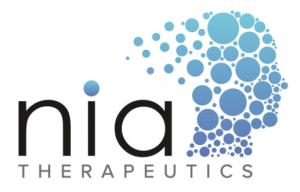 Nia Therapeutics develops first-in-class therapeutic devices to restore memory after brain injury and degenerative disease. Their proprietary neurotechnology platform interprets the brain activity related to memory and provides a personalized neurostimulation therapy for each patient. Nia Therapeutics develops first-in-class therapeutic devices to restore memory after brain injury and degenerative disease. Their proprietary neurotechnology platform interprets the brain activity related to memory and provides a personalized neurostimulation therapy for each patient.
 Neurolux, a startup based on Prof. John Rogers’ research, provides breakthrough discovery tools for neuroscience, including revolutionary optogenetic stimulation devices that feature battery-free, completely wireless, fully implantable light sources. Neurolux, a startup based on Prof. John Rogers’ research, provides breakthrough discovery tools for neuroscience, including revolutionary optogenetic stimulation devices that feature battery-free, completely wireless, fully implantable light sources.
 Precision Neuroscience’s goal is to provide breakthrough treatments for the one billion patients worldwide suffering from neurological illnesses. They are building the only brain–computer interface that is designed to be minimally invasive, safely removable, and capable of processing large amounts of data. Precision Neuroscience’s goal is to provide breakthrough treatments for the one billion patients worldwide suffering from neurological illnesses. They are building the only brain–computer interface that is designed to be minimally invasive, safely removable, and capable of processing large amounts of data.
 Starfish Neuroscience is committed to discovering the localized patterns of brain activity involved in many conditions, from disorders of movement and mood to sleep regulation and pain perception. Their engineers and scientists are developing new ways to modulate and monitor brain activity, including novel acoustic, magnetic, and optical techniques. Starfish Neuroscience is committed to discovering the localized patterns of brain activity involved in many conditions, from disorders of movement and mood to sleep regulation and pain perception. Their engineers and scientists are developing new ways to modulate and monitor brain activity, including novel acoustic, magnetic, and optical techniques. Phantom Neuro intends to create a system that can enable lifelike control of robotic orthopedic technologies, such as prosthetic limbs and exoskeletons. Phantom Neuro intends to create a system that can enable lifelike control of robotic orthopedic technologies, such as prosthetic limbs and exoskeletons.
 Motif Neurotech specializes in wireless power and data which helps in unlocking possibilities for new, miniature implants for tissue stimulation and diagnostic readings, enabling patients to repair neural circuits with minimally invasive electronic therapies. Motif Neurotech specializes in wireless power and data which helps in unlocking possibilities for new, miniature implants for tissue stimulation and diagnostic readings, enabling patients to repair neural circuits with minimally invasive electronic therapies.
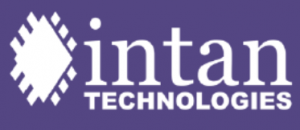 Intan Technologies focuses on developing cutting-edge integrated circuits and systems for the acquisition and processing of neural and physiological signals. Their products are widely used in neuroscience research, electrophysiology experiments, and other scientific and medical applications. Intan Technologies focuses on developing cutting-edge integrated circuits and systems for the acquisition and processing of neural and physiological signals. Their products are widely used in neuroscience research, electrophysiology experiments, and other scientific and medical applications.
 Axoft offers a bioinspired, scalable implant that promotes long-term communication with the nervous system, transforming clinical outcomes, individual health, and the human experience. Axoft offers a bioinspired, scalable implant that promotes long-term communication with the nervous system, transforming clinical outcomes, individual health, and the human experience.
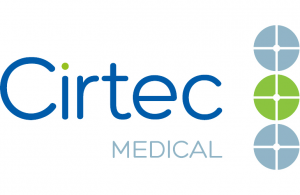 Cirtec Medical is a contract manufacturer and outsourcing partner that provides comprehensive solutions for medical device companies. The company focuses on designing, developing, and manufacturing a range of medical devices and components, particularly for implantable and minimally invasive medical technologies. Cirtec Medical is a contract manufacturer and outsourcing partner that provides comprehensive solutions for medical device companies. The company focuses on designing, developing, and manufacturing a range of medical devices and components, particularly for implantable and minimally invasive medical technologies.
 Panaxium are the world-leader in microscale iontronic technologies. Their multidisciplinary team has a deep technical expertise in organic bioelectronics, chemistry, materials science, neuroscience, machine learning, and microsystem design. Panaxium are the world-leader in microscale iontronic technologies. Their multidisciplinary team has a deep technical expertise in organic bioelectronics, chemistry, materials science, neuroscience, machine learning, and microsystem design.
 Magnus Medical develops closed-loop neuromodulation technology to treat intractable neurological and psychiatric disorders effectively. They especially offer individuals who suffer from neuropsychiatric disorders more personalized and effective treatment options. Magnus Medical develops closed-loop neuromodulation technology to treat intractable neurological and psychiatric disorders effectively. They especially offer individuals who suffer from neuropsychiatric disorders more personalized and effective treatment options.
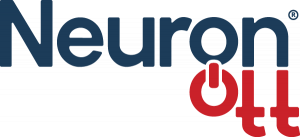 Neuronoff, a medical device company, is focused on the development of the Injectrode, an injectable metal electrode, which is deployed via a small needle for manufacturing the neuromodulation interface inside the body on a variety of anatomical targets. Neuronoff, a medical device company, is focused on the development of the Injectrode, an injectable metal electrode, which is deployed via a small needle for manufacturing the neuromodulation interface inside the body on a variety of anatomical targets.
 Reach Neuro develops medical devices to restore movement in people with chronic strokes and other neurological disorders. Their mission is to develop the first ever treatment for chronic disability caused by stroke. Reach Neuro develops medical devices to restore movement in people with chronic strokes and other neurological disorders. Their mission is to develop the first ever treatment for chronic disability caused by stroke.
 Synchron, Inc. is a medical technology company that specialized in developing brain-computer interface (BCI) systems. The company’s mission is to create innovative solutions that allowed individuals with neurological disorders to communicate and interact with the world by directly interfacing with their brains. Synchron, Inc. is a medical technology company that specialized in developing brain-computer interface (BCI) systems. The company’s mission is to create innovative solutions that allowed individuals with neurological disorders to communicate and interact with the world by directly interfacing with their brains.
 Open BCI‘s mission is to provide accessible and affordable brain-computer interface technology to individuals, researchers, and developers. They believe that by making their hardware and software open-source, they can accelerate the development of BCIs and foster collaboration within the BCI community. Open BCI‘s mission is to provide accessible and affordable brain-computer interface technology to individuals, researchers, and developers. They believe that by making their hardware and software open-source, they can accelerate the development of BCIs and foster collaboration within the BCI community.
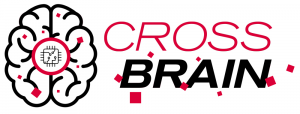 CROSSBRAIN is an innovative project aiming to revolutionize brain manipulation by combining advanced nanotechnology, wireless communication, and customized materials. This convergence will enable precise and individualized control of brain tissue without scarring, using cutting-edge computing techniques. CROSSBRAIN is an innovative project aiming to revolutionize brain manipulation by combining advanced nanotechnology, wireless communication, and customized materials. This convergence will enable precise and individualized control of brain tissue without scarring, using cutting-edge computing techniques.
 Setpoint Medical’s primary focus has been on the development of neuromodulation therapies for autoimmune diseases, including rheumatoid arthritis and Crohn’s disease. By modulating the immune response through neural pathways, SetPoint aims to reduce the severity of symptoms and potentially provide an alternative or complementary treatment to traditional therapies. Setpoint Medical’s primary focus has been on the development of neuromodulation therapies for autoimmune diseases, including rheumatoid arthritis and Crohn’s disease. By modulating the immune response through neural pathways, SetPoint aims to reduce the severity of symptoms and potentially provide an alternative or complementary treatment to traditional therapies.
 CEA-Leti is a leading research institute specializing in microelectronics and nanotechnology. Its mission is to drive innovation and research in these fields to address societal challenges, foster technological advancements, and support industrial partners in various sectors. CEA-Leti is a leading research institute specializing in microelectronics and nanotechnology. Its mission is to drive innovation and research in these fields to address societal challenges, foster technological advancements, and support industrial partners in various sectors.
 Neuspera‘s technology includes implantable neuromodulation devices that use mid-field powering techniques and can be implanted deeper, enabling patients to get treatment options that are less invasive and more adaptable. Neuspera‘s technology includes implantable neuromodulation devices that use mid-field powering techniques and can be implanted deeper, enabling patients to get treatment options that are less invasive and more adaptable.
 Mintneuro is a pioneering company aiming to revolutionize active implantable medical devices for the brain. They strive to achieve optimal patient outcomes with minimally invasive procedures. Their team comprises leading experts in neuroscience, microtechnology, and implantable neural interfaces, backed by extensive experience in the medical technology industry and clinical practice. Mintneuro is a pioneering company aiming to revolutionize active implantable medical devices for the brain. They strive to achieve optimal patient outcomes with minimally invasive procedures. Their team comprises leading experts in neuroscience, microtechnology, and implantable neural interfaces, backed by extensive experience in the medical technology industry and clinical practice.
 CSEM is a private, non-profit research and technology organization that conducts applied research in various fields, including microelectronics, microtechnology, nanotechnology, photovoltaics, robotics, and more. The organization aims to bridge the gap between academic research and industry by developing innovative technologies and solutions that can be translated into real-world applications. CSEM is a private, non-profit research and technology organization that conducts applied research in various fields, including microelectronics, microtechnology, nanotechnology, photovoltaics, robotics, and more. The organization aims to bridge the gap between academic research and industry by developing innovative technologies and solutions that can be translated into real-world applications.
 Science.xyz intends to offer new hope for patients with serious blindness due to photoreceptor loss. They have a proven track record of engaging in cutting-edge research, science communication, educational outreach and are adept at translating complex scientific concepts into accessible content for a wide range of audiences. Science.xyz intends to offer new hope for patients with serious blindness due to photoreceptor loss. They have a proven track record of engaging in cutting-edge research, science communication, educational outreach and are adept at translating complex scientific concepts into accessible content for a wide range of audiences.

OpenBCI creates open-source tools for biosensing and neuroscience. OpenBCI’s mission is to lower the barrier to entry for brain-computer interfacing, while ensuring that these technologies are adopted into the consumer landscape in an ethical way that protects user agency and mental health.

Neuronetics is a medical technology company focused on designing, developing, and marketing products that improve quality of life for patients suffering from psychiatric disorders. Neuronetics’ NeuroStar® Advanced Therapy is today’s leading TMS (transcranial magnetic stimulation) technology and was the first TMS system designed for clinical use in the treatment of people with major depressive disorder (MDD).

CorTec is a young medtech company that was founded in Freiburg, Germany, in September 2010. As leading experts for innovations in the field of medical engineering they are following the vision to take implantable neurotechnologies to the next level. Their complete system, the CorTec Brain Interchange Platform, as well as its components, such as electrodes or hermetic packaging realize the communication with the central and peripheral nervous system.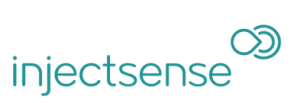
Injectsense exists at the intersection of advanced semiconductor technology and medical systems. They develop implant-based digital health systems to provide medical staff with continuous long-term data for improved therapy management. They combine years of hands-on engineering experience in advanced microtechnology — including ultra-low power IC design, telemetry and miniaturization — with medical market, regulatory, software, and device expertise. Their cross-functional approach has bridged these domains, yielding a number of innovative patent-pending solutions.

Amber Therapeutics was founded by a multidisciplinary team of clinicians, translational neuroengineers, medtech industry professionals and experienced entrepreneurs focused on developing transformational therapy innovation for major unmet medical conditions. They are working towards developing the next-generation of bioelectrical therapies that can sense and adapt as well as stimulate, with the potential to radically improve clinical outcomes in patients with functional disorders of the peripheral nervous system.
 SynSense (formerly aiCTX) was established in 2017, and is the world’s leading supplier of neuromorphic intelligence and application solutions. SynSense focuses on the commercialization of neuromorphic intelligence, based on 20+ years of world-leading experience of University of Zürich and ETH Zürich. Centering on edge computing applications, SynSense provides ultra-low power consumption, ultra-low latency inference ASICs and IP blocks, as well as full-stack application development services, and is globally the only neuromorphic technology company that involves both sensing and computing. SynSense (formerly aiCTX) was established in 2017, and is the world’s leading supplier of neuromorphic intelligence and application solutions. SynSense focuses on the commercialization of neuromorphic intelligence, based on 20+ years of world-leading experience of University of Zürich and ETH Zürich. Centering on edge computing applications, SynSense provides ultra-low power consumption, ultra-low latency inference ASICs and IP blocks, as well as full-stack application development services, and is globally the only neuromorphic technology company that involves both sensing and computing.
 Forest Neurotech is developing an ultrasound-based BCI and software platform with the aim of catalyzing breakthroughs in both the understanding and personalized treatment of the human brain. Ultrasound is capable of measuring and stimulating brain-wide activity in a minimally invasive manner. This opens new avenues for research into personalized therapies across a range of psychiatric and cognitive disorders. As a nonprofit Focused Research Organization (FRO), Forest Neurotech has the freedom to focus solely on advancing science and engineering for the public good. Pioneered by Convergent Research, a member of the Schmidt Futures Network, FROs are designed to overcome key technological bottlenecks for the advancement of science and medicine. Forest Neurotech is developing an ultrasound-based BCI and software platform with the aim of catalyzing breakthroughs in both the understanding and personalized treatment of the human brain. Ultrasound is capable of measuring and stimulating brain-wide activity in a minimally invasive manner. This opens new avenues for research into personalized therapies across a range of psychiatric and cognitive disorders. As a nonprofit Focused Research Organization (FRO), Forest Neurotech has the freedom to focus solely on advancing science and engineering for the public good. Pioneered by Convergent Research, a member of the Schmidt Futures Network, FROs are designed to overcome key technological bottlenecks for the advancement of science and medicine.
 Openwater was founded in 2016 to explore an idea: What if advancements in fields as diverse as consumer electronics, semiconductor device physics, and artificial intelligence could come together for a future where the profound act of curing disease becomes a reality for all, transcending borders and transforming the course of human health. Openwater was founded in 2016 to explore an idea: What if advancements in fields as diverse as consumer electronics, semiconductor device physics, and artificial intelligence could come together for a future where the profound act of curing disease becomes a reality for all, transcending borders and transforming the course of human health.
|
 Medtronic is a global medical technology company founded in 1949 that develops and distributes medical devices worldwide. These devices, such as heart regulators and spinal implants, have greatly impacted healthcare by improving patients’ lives.
Medtronic is a global medical technology company founded in 1949 that develops and distributes medical devices worldwide. These devices, such as heart regulators and spinal implants, have greatly impacted healthcare by improving patients’ lives. RBI Medical is a medical device company that specializes in bioelectronic medicine and selective neuromodulation treatment. The company develops a Neuromodulation system that delivers personalized stimulation to treat dysfunction and restore normal urinary retention.
RBI Medical is a medical device company that specializes in bioelectronic medicine and selective neuromodulation treatment. The company develops a Neuromodulation system that delivers personalized stimulation to treat dysfunction and restore normal urinary retention. Kernel, established in 2016 by Bryan Johnson, strives to boost human cognition and tap into brain potential via technology. They work on non-invasive and invasive brain interfaces for studying and interacting with neural activity.
Kernel, established in 2016 by Bryan Johnson, strives to boost human cognition and tap into brain potential via technology. They work on non-invasive and invasive brain interfaces for studying and interacting with neural activity. Neuralink, founded in 2016, envisions a brain-machine interface for two-way communication between the brain and external devices. Their goal is to create impactful technologies that enhance human health and capabilities.
Neuralink, founded in 2016, envisions a brain-machine interface for two-way communication between the brain and external devices. Their goal is to create impactful technologies that enhance human health and capabilities.


































